On Sunday April 21st 2013 I received the following email from Liz Newman:
Following
up a bit of information from David Freke, we visited Hanwell church
today. On the exterior wall of the south aisle, we counted a dozen
scratch dials.
Early astronomers in Hanwell?
I
was so intrigued that I popped over the following day and sure enough
there they were scattered over the eastern end of the wall of the
south aisle. In fact on my count I made the total rather higher, there
were, to my reckoning, at least eighteen possibilities. In some cases
whilst there was clearly a hole for a central gnomon (the sticking up
bit that makes the shadow) the associated scratch marks were absent
either because the surface of the ironstone had spalled away or perhaps
the lighting conditions were simply not good enough to show up really
faint indentations. Whatever the case I'll need to go back and record
what's there systematically. Of course this could mean creeping round
the churchyard in the dead of night with a very powerful torch... I'll
be sure to tell folks before I attempt that. In the other cases there
were between two and six scratched divisions and two examples, numbers
1 and 18 also had a scribed circle around the socket.
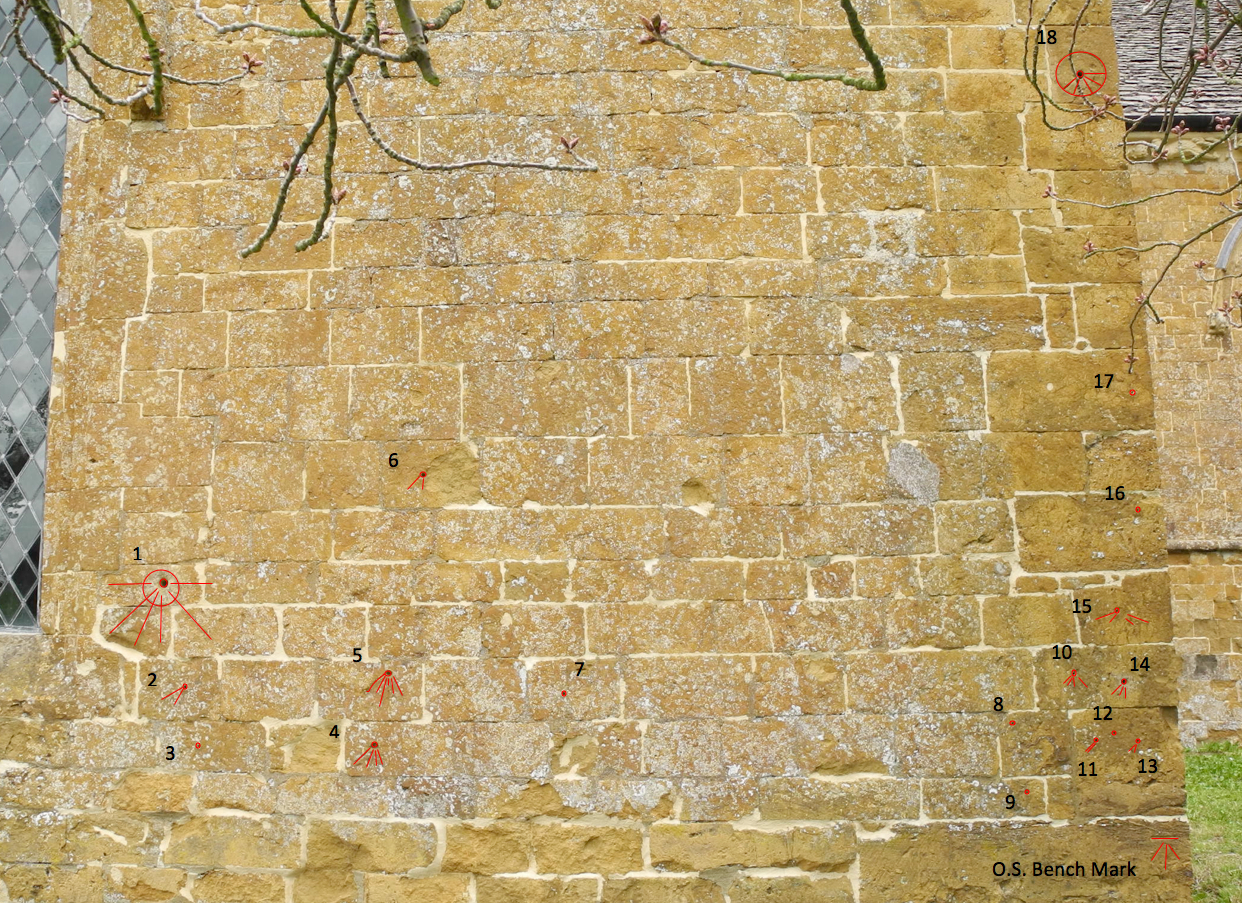
Wall of south aisle with annotations
The
point is that whether there are are twelve or more this is a very high
number. I'm nowhere near an expert but a quick look round on-line
listings suggests that while it was by no means unusual to have more
than one such dial this number is very unusual if not unique. What is
happening here? It is certainly odd given the on-going interest in
astronomy in the village but these things are generally regarded as
being medieval, rudimentary time keepers to enable the priest to
celebrate certain offices with regular timing, and certainly predate
Sir Anthony's gift of a clock in 1671. Here are some of the highlights:
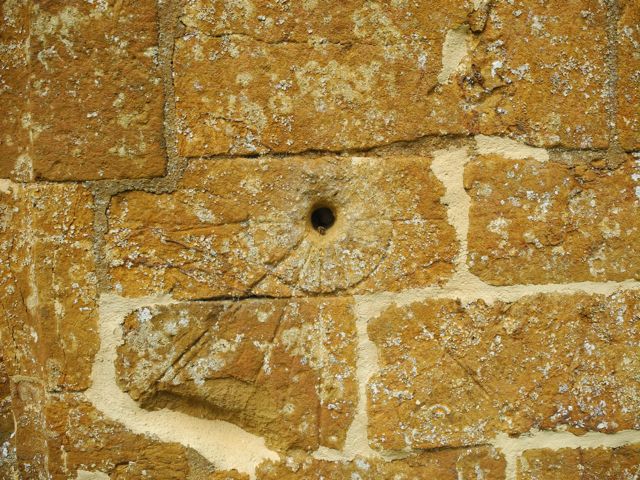
Dial 1 with scribed circle, horizontal line and four further divisions
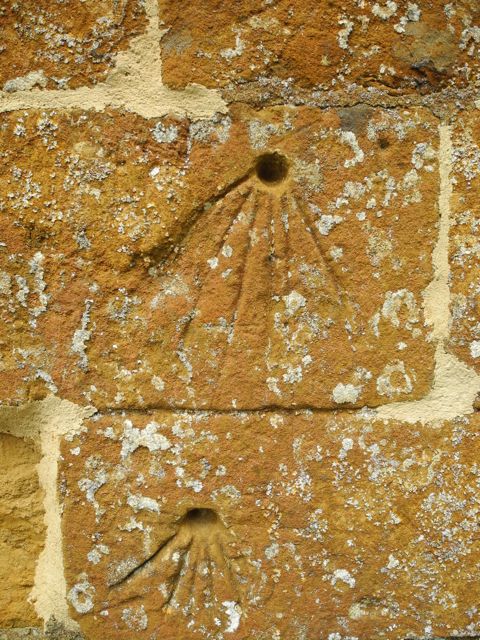
Dials 4 and 5, both sets of lines are quite deeply cut.
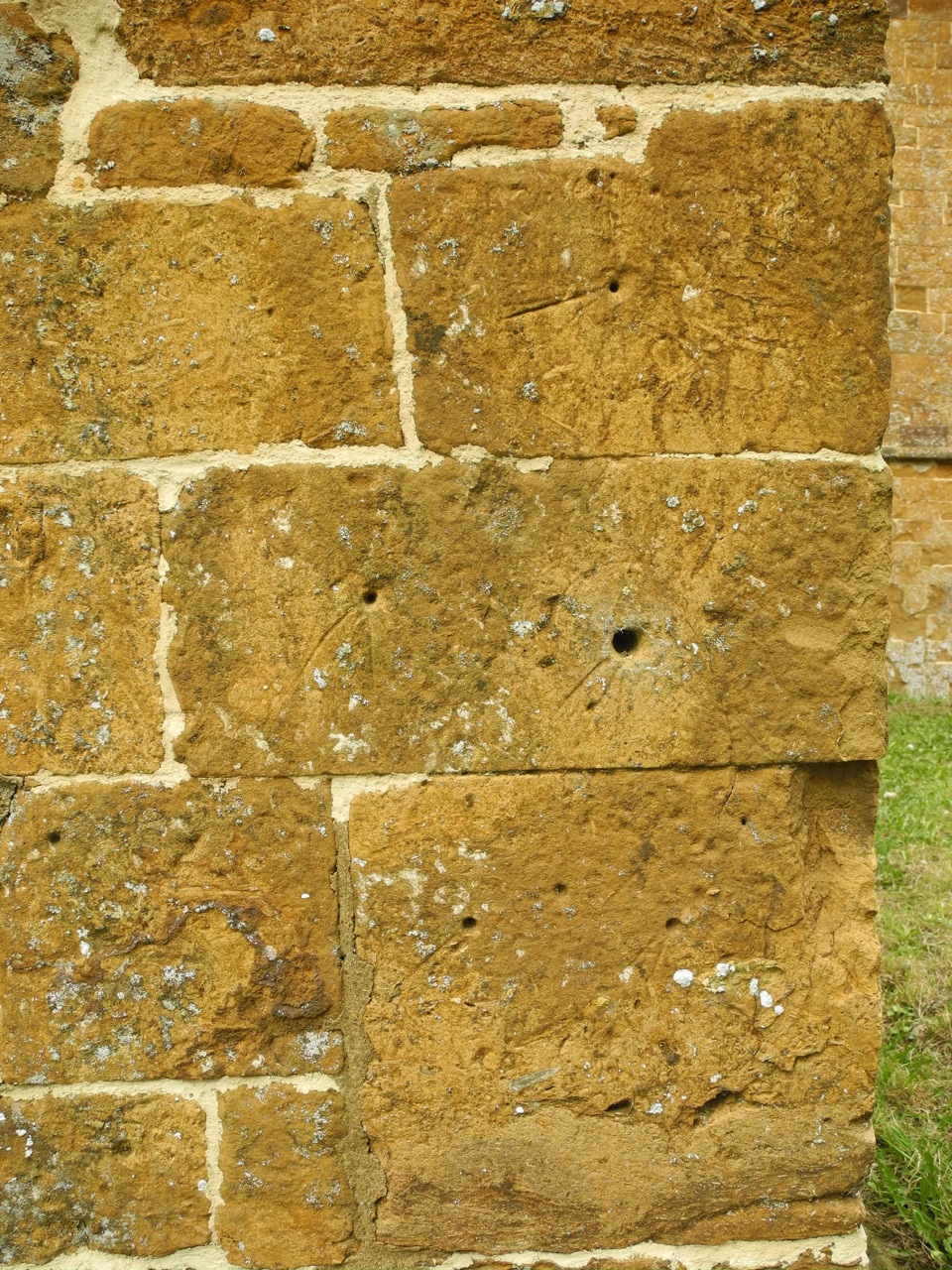
From the top downwards: dials 15, 10, 14, 8, 12 , 11 and 13
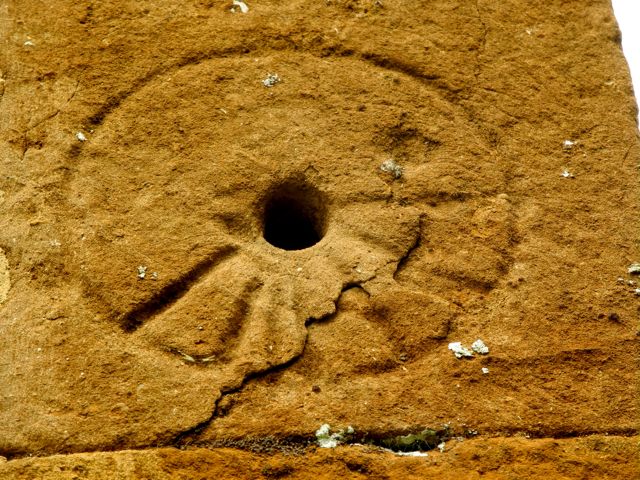
Dial 18, the highest in the collection and unique in having the divisions confined to an outer circle.
Apologies
for not including a scale on these photos, I also need to take my
ladder next time. As ever, if anyone has any thoughts or observations on this collection please do get in touch. For anybody who wants to take this further there is a national organisation The British Sundial Society, who are keen to compile a gazeteer of all known examples. Who fancies doing the paperwork?





